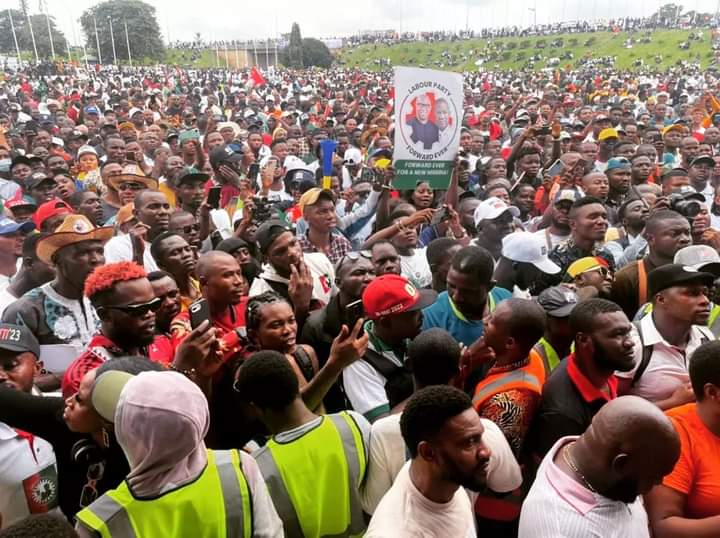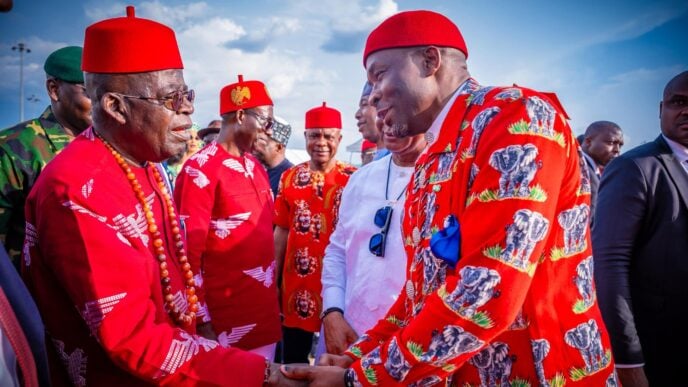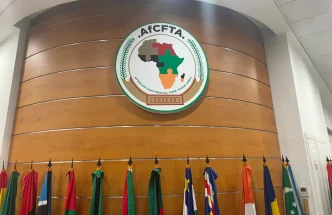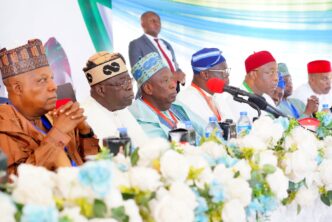BY VICTOR TERHEMBA
Totalitarianism, in its classical sense, refers to a political system in which the state recognises no limits to its authority and seeks to regulate every aspect of public and private life. When applied to the domain of thought and discourse, however, totalitarianism morphs into a more insidious social phenomenon—a rigid insistence that only a singular perspective is valid, and all others must be silenced, ridiculed, or coerced into compliance. In contemporary Nigeria, this intellectual totalitarianism is increasingly evident in the social, political, and digital spaces, where many individuals treat their personal opinions not as subjective positions but as infallible truths.
One of the foundational principles of democracy is pluralism, the acceptance and coexistence of multiple, even conflicting, viewpoints. Democracy, by design, thrives on debate, dissent, and diversity of thought. However, in today’s Nigeria, public discourse is becoming alarmingly polarised. Individuals now frequently conflate personal opinion with empirical fact, and in doing so, they adopt an absolutist posture that dismisses dissent as ignorance or malice.
The social media space has become a fertile breeding ground for this phenomenon. The democratisation of information via platforms like Twitter (now X), Facebook, and WhatsApp has unfortunately also led to the democratisation of misinformation, coupled with an erosion of civility and respect for opposing views. It is now commonplace to encounter people who, under the guise of activism or political engagement, aggressively attack those who differ from them.
Advertisement
Historically, societies that have suppressed dissenting voices in favour of monolithic thought structures have flirted with authoritarian collapse. George Orwell’s dystopian novel 1984 offers a literary illustration of how control over thought and language can lead to intellectual servitude. Similarly, totalitarian regimes in the 20th century (from Nazi Germany to Stalinist USSR) exemplified how enforcing a singular ideological narrative could decimate the soul of a nation.
In Nigeria, although the state itself may not be enforcing a single narrative, the culture of thought among citizens increasingly mimics totalitarian tendencies. Whether in debates around religion, ethnicity, or politics, disagreement is no longer seen as a component of dialogue but as a declaration of war.
One of the most illustrative examples of this trend is found within the so-called “Obidient” movement—the online and offline support base of Peter Obi, the Labour Party’s presidential candidate in the 2023 elections. While the movement began with noble intentions of political reform and citizen empowerment, parts of it have descended into a near-fanatic intolerance of divergent views.
Advertisement
Critics of Peter Obi, or even those who express neutrality, are often met with a torrent of online abuse, labelled as enemies of progress, or accused of being morally or intellectually bankrupt. There is a disturbing assumption that support for any other candidate is not only misguided but inherently evil. This ideological chauvinism not only undermines democratic values but also alienates potential allies who might agree on broader reforms but differ on strategy or leadership.
A similar form of intellectual absolutism can be observed in certain strands of online feminism in Nigeria. Although feminism, at its core, advocates for the right of women to make autonomous choices, some contemporary Nigerian feminists seem to impose a narrow, often Western-centric template of what womanhood must look like.
Take the now-infamous case of “Mummy Zee,” a woman who was publicly castigated and condemned for expressing pride in waking up at 4 a.m. to cook for her husband. Rather than being celebrated for exercising her agency in a personal relationship, she was (and still is being) labeled a “pick me” and derided for perpetuating patriarchal norms. This reaction is a deeply ironic contradiction; in the name of liberating women, some feminists have become gatekeepers of acceptable female behaviour, denying women the freedom to define empowerment on their own terms.
What drives this opinion absolutism? Psychologically, it can be linked to cognitive biases such as the Dunning-Kruger effect, where individuals overestimate their understanding of complex issues. Sociologically, it reflects a deeper crisis of identity and trust in institutions. In a country where the state has repeatedly failed to deliver justice, security, and opportunity, citizens cling to their opinions as a form of existential certainty. Their views become extensions of their identity, and any challenge feels like an attack on their very being.
Advertisement
The essence of a healthy democratic society lies in its embrace of epistemic humility—the understanding that no individual or group holds a monopoly on truth. Opinions, by nature, are subjective and context-dependent. The conflation of opinion with fact, and belief with empirical knowledge, is not just intellectually dishonest; it is socially dangerous.
Interestingly, the economic and social precarity in Nigeria has intensified ideological rigidity. With so much instability, people gravitate toward binaries: good vs. evil, us vs. them. The nuanced middle ground, where most democratic dialogue should occur, is abandoned in favor of tribal loyalty, be it political, religious, or cultural.
The consequences of this totalitarianism of opinions are grave. It is such that encourages intellectual laziness, where echo chambers replace critical thinking. It discourages nuanced debate, where the goal is not to understand but to dominate. It also threatens civic cohesion, as people become more tribal, less tolerant, and increasingly hostile to diversity of thought.
Most worryingly, it deters political participation. When the public square becomes a battlefield of insults and self-righteousness, many opt out entirely, leaving the discourse to be dominated by the loudest and most intolerant voices. This depletes the democratic process of its essential ingredient: inclusive, respectful, and pluralistic engagement.
Advertisement
If Nigeria is to deepen its democratic roots, it must first confront the creeping authoritarianism of opinion. Citizens must be taught—and reminded—that disagreement is not treason, and that truth often emerges through friction, not conformity. We must move from the arrogance of certainty to the humility of inquiry. Schools, religious institutions, and media platforms must all play a role in reviving a culture of critical thinking, active listening, and respectful dialogue.
Pluralism is not weakness; it is the strength of democracy. And in a country as complex and diverse as Nigeria, our survival depends not on unanimity, but on our ability to live with difference—and to debate without dehumanising.
Advertisement
Victor Terhemba is a dedicated development practitioner and democracy advocate with years of experience in advancing Democracy, Youth Participation, Civic Engagement, and Inclusive Governance in Nigeria. He can be reached via [email protected] or on X @Victor_Terhemba.
Advertisement
Views expressed by contributors are strictly personal and not of TheCable.











